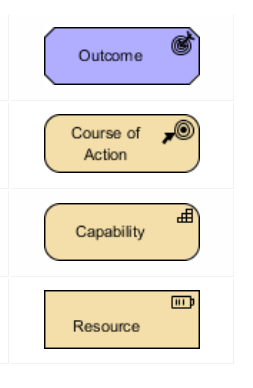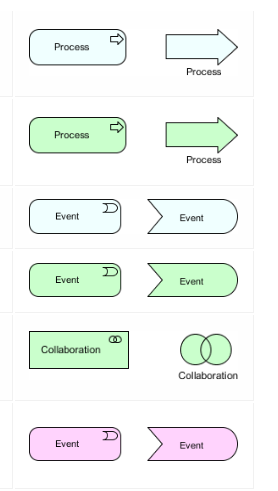ArchiMate 3.0 introduces several significant enhancements and new features that expand its capabilities and improve its usability for enterprise architecture modeling. Here are the key updates:
1. New Strategy Elements
ArchiMate 3.0 introduces several new strategy elements to better link business strategy with architecture layers. These elements include:
- Outcome: Represents an end result that has been achieved1.
- Course of Action: Defines an approach or plan for configuring capabilities and resources to achieve a goal1.
- Capability: Refers to an ability that an active structure element, such as an organization, person, or system, possesses1.
- Resource: Represents an asset owned or controlled by an individual or organization1.
2. New Elements in Various Layers
Several new elements have been added across different layers to enhance modeling capabilities:
- Application Process: A sequence of application behaviors that achieves a specific outcome1.
- Technology Process: A sequence of technology behaviors that achieves a specific outcome1.
- Application Event: An application behavior element that denotes a state change1.
- Technology Event: A technology behavior element that denotes a state change1.
- Technology Interaction: A unit of collective technology behavior performed by a collaboration of two or more nodes1.
- Implementation Event: A behavior element that denotes a state change related to implementation or migration1.
3. Improvements in Cross-Layer Relationships
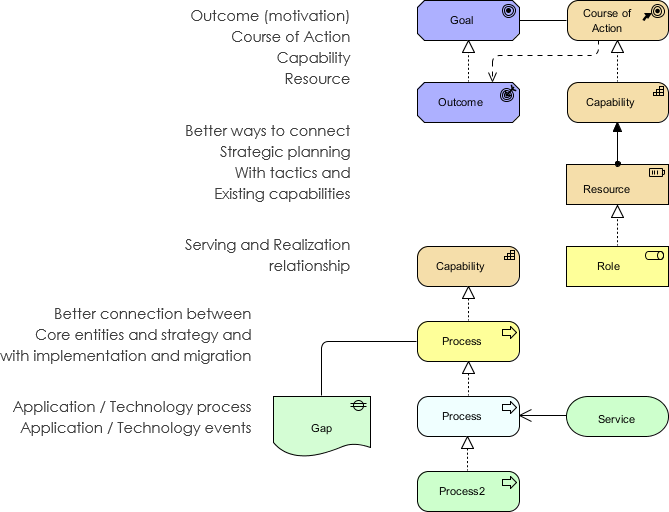
ArchiMate 3.0 enhances the relationships between different layers, making it easier to model complex architectures that span multiple domains. This includes improved grouping for many-to-one relationships and joint realization for multifaceted dependencies.
4. New Physical Layer
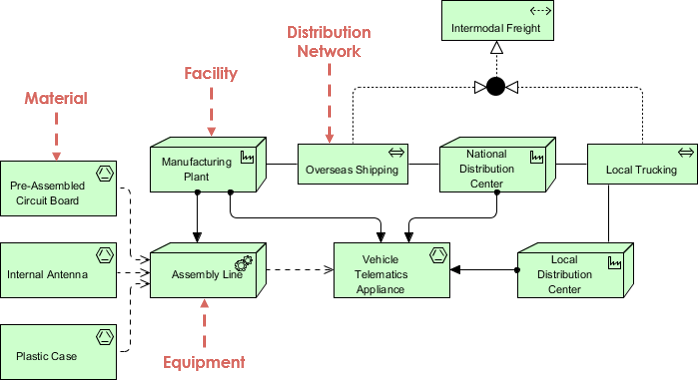
One of the major improvements in ArchiMate 3.0 is the addition of a physical layer. This layer provides better modeling capabilities for describing the integration between the digital and physical worlds, such as IoT, robotics, and smart grids. It includes new ways to represent physical assets like machinery, factories, equipment, and distribution networks, offering additional features to represent a wider range of real-case modeling situations3.
5. Enhanced Viewpoints Definition Mechanism
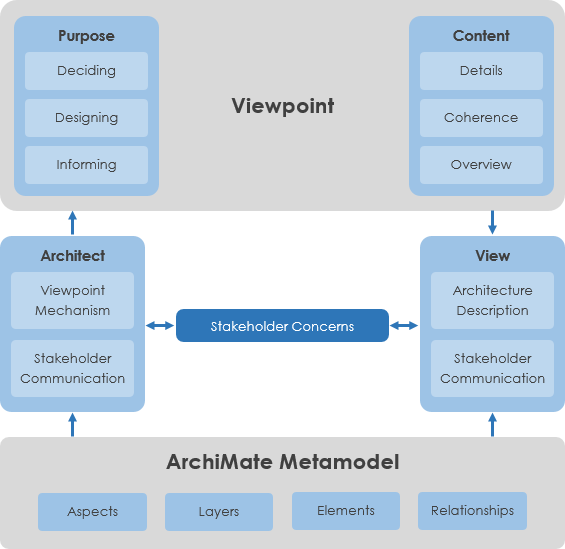
The viewpoint mechanism in ArchiMate 3.0 has been improved to provide a clearer and more flexible way to define and use viewpoints. The list of viewpoints has been placed in an informative appendix, making it clear that these are example viewpoints that can be customized according to specific needs13.
6. Certified ArchiMate Tool
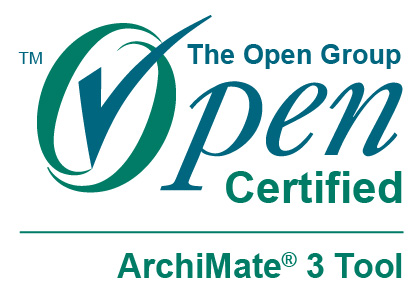
Visual Paradigm Enterprise Edition is a certified ArchiMate 3 enterprise architecture tool that supports all ArchiMate 3 vocabulary, notation, syntax, and semantics. It also supports the ArchiMate Viewpoint Mechanism, allowing users to create model views with official or user-defined viewpoints1.
7. Custom Viewpoints
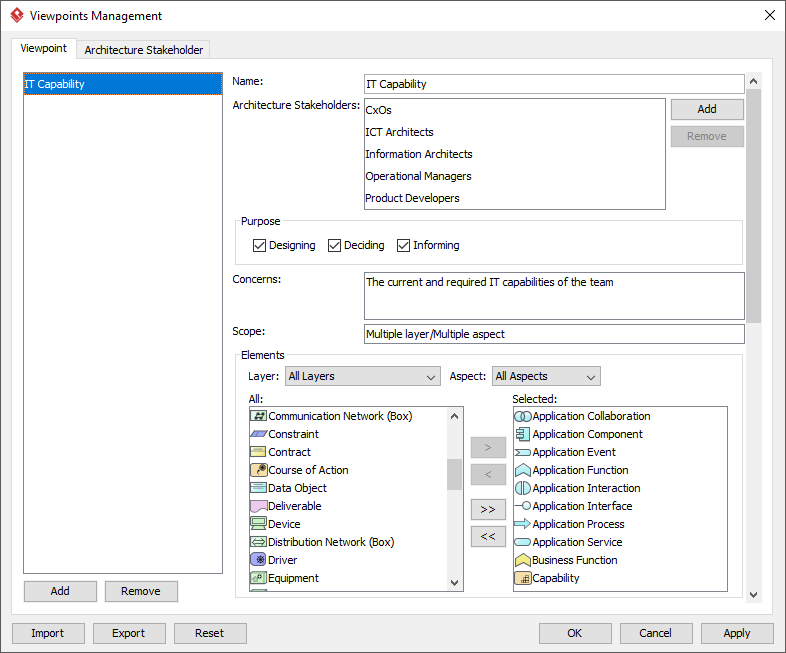
ArchiMate 3.0 allows for the creation of custom viewpoints, enabling users to select the elements available and define the stakeholders interested in them. This feature provides greater flexibility in tailoring the architecture models to specific requirements1.
Conclusion
ArchiMate 3.0 represents a significant advancement in enterprise architecture modeling, offering new elements, improved relationships, and enhanced capabilities for modeling physical assets and strategies. These updates make ArchiMate 3.0 a more powerful and versatile tool for enterprise architects, supporting a wide range of modeling scenarios and stakeholder needs.
Resources
- ArchiMate Tutorial: A Comprehensive Guide for Architects
- ArchiMate 3.1 Certification Guide: Steps to Get Certified
- ArchiMate Modeling Techniques and Best Practices
- Getting Started with ArchiMate in Visual Paradigm
- ArchiMate Diagrams: An In-depth Guide
- ArchiMate Metamodel: A Comprehensive Guide
- ArchiMate Tool: Choosing the Right One for Your Business
- ArchiMate vs BPMN: A Comprehensive Comparison
- ArchiMate for Enterprise Architecture: A Practical Guide
- ArchiMate Examples: Real-world Scenarios for Inspiration
